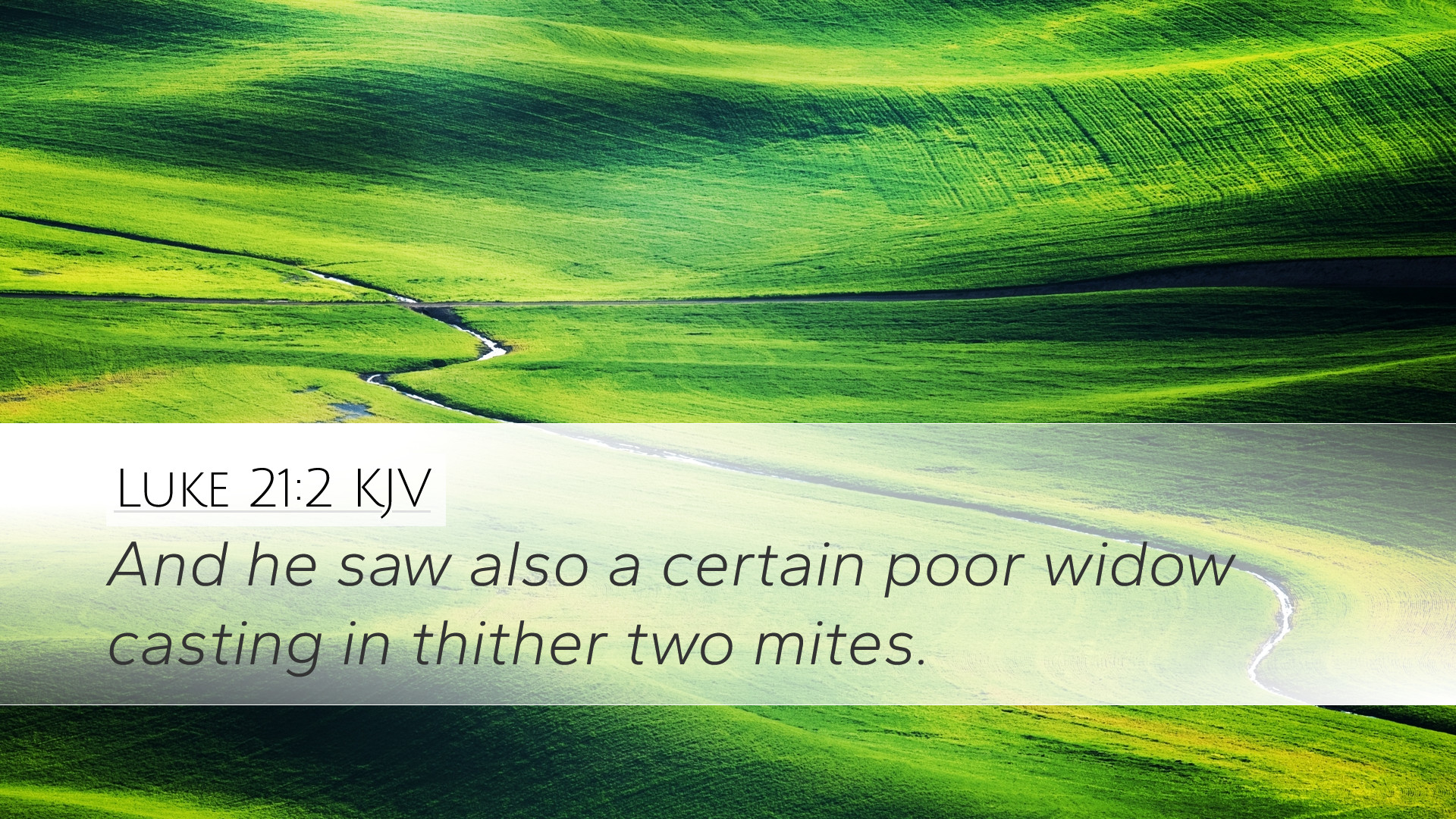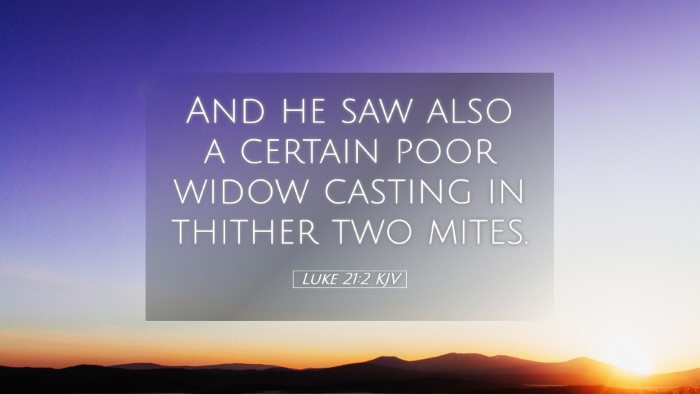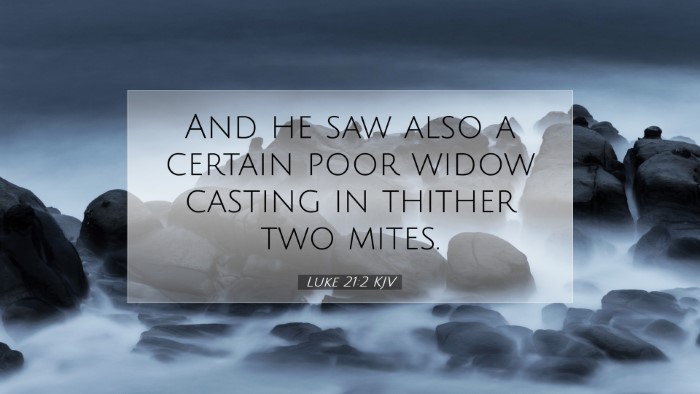Commentary on Luke 21:2
Verse Context: Luke 21:2 states, "And He saw also a certain poor widow casting in two mites." This moment occurs in the Temple as Jesus observes the offerings made by people, setting the stage for a profound teaching on the nature of giving and the heart behind it.
Introduction
The account of the widow’s offering found in Luke 21:2 serves as a powerful illustration of sacrificial giving and the value God places on the intentions of the heart rather than the quantity of gifts. As noted by early commentators, this verse not only provides insight into Jesus' perception of giving but also a reflection of broader theological and social themes within the Gospel narrative.
Insights from Matthew Henry
Matthew Henry, in his comprehensive commentary, emphasizes the significance of the widow's action. He notes that her offering, though small in monetary value, represented a greater sacrifice than the larger gifts of the wealthy. In his view, the widow's two mites symbolize the essence of true devotion and faith that transcends material possessions.
- Spiritual Richness Over Material Wealth: Henry highlights that true wealth in the kingdom of God is measured not by how much one gives, but by how much one retains for oneself.
- The Motive Behind Giving: He underscores that God looks at the heart, implying that the intention behind the act is what counts. The widow's act of giving was a display of her faith and trust in God’s provision.
Insights from Albert Barnes
Albert Barnes elaborates on the cultural context of the Temple and its monetary system. He notes that the two mites, being the smallest denomination in circulation, would have likely gone unnoticed by many, yet they caught Jesus' attention.
- Cultural Context of the Temple: Barnes details how the Temple was full of rich individuals contributing large sums to showcase their wealth and piety. However, the focus shifted to the widow, who gave out of her poverty.
- Theological Implication of Giving: Barnes argues that this event teaches the profound lesson that God’s evaluation of our actions is not based on external appearances, but rather on the internal condition of our hearts.
Insights from Adam Clarke
Adam Clarke offers a more analytical approach, discussing the implications of the widow's offering in relation to the socio-economic status of women in the first-century Jewish society.
- Status of Widows in Society: Clarke points out that widows were often among the most vulnerable in society. The widow's offering serves as a poignant reminder of the sacrifices made by those who are marginalized.
- Religious Duty and Faith: He explains that the widow’s understanding of her religious duty compelled her to give her last resources. This reflects an intense commitment to faith even in dire circumstances, showcasing the depth of her devotion.
Theological Reflections
Bringing together insights from these esteemed commentators provides a rich theological framework for understanding Luke 21:2:
- Divine Recognition of Acts: The episode reveals how God sees what is often overlooked by others. This teaches believers that every act of service counts in the eyes of God, regardless of human judgment.
- Value of Sacrificial Giving: It underlines the theological principle that God values sacrificial giving over mere abundance. The widow’s act was a profound expression of love for God, teaching believers about the heart of true stewardship.
- Faith and Dependence: The act of giving everything she had reflects a deep dependence on God. This challenges Christian traditions of accumulating wealth and instead emphasizes total reliance on God’s provision.
Practical Applications for Today’s Believers
As we reflect on this verse and the accompanying commentary, several practical takeaways emerge for pastors, students, scholars, and believers alike:
- Examine our Motives: Constant self-reflection is essential in evaluating why we give. Are our motivations aligned with God’s principles of love and sacrifice?
- Encourage Generosity Among All: Churches should promote a culture of generosity where everyone feels encouraged to contribute, regardless of their financial status.
- Highlight Small Acts of Service: Focus on stories of individuals whose small acts of kindness have significant impacts on others, demonstrating that greatness in God’s eyes is often found in humility and simplicity.
Conclusion
Luke 21:2 offers a profound lesson on the nature of giving and the heart behind our actions. Through the insights of Matthew Henry, Albert Barnes, and Adam Clarke, we gain a rich understanding of how sacrificial giving is valued in the Kingdom of God. This commentary encourages us to reevaluate our approach to generosity, ensuring it stems from a place of faith and devotion rather than obligation or desire for recognition. Ultimately, as we strive to follow Christ, may we emulate the heart of the widow — giving all we have as an offering to God.


